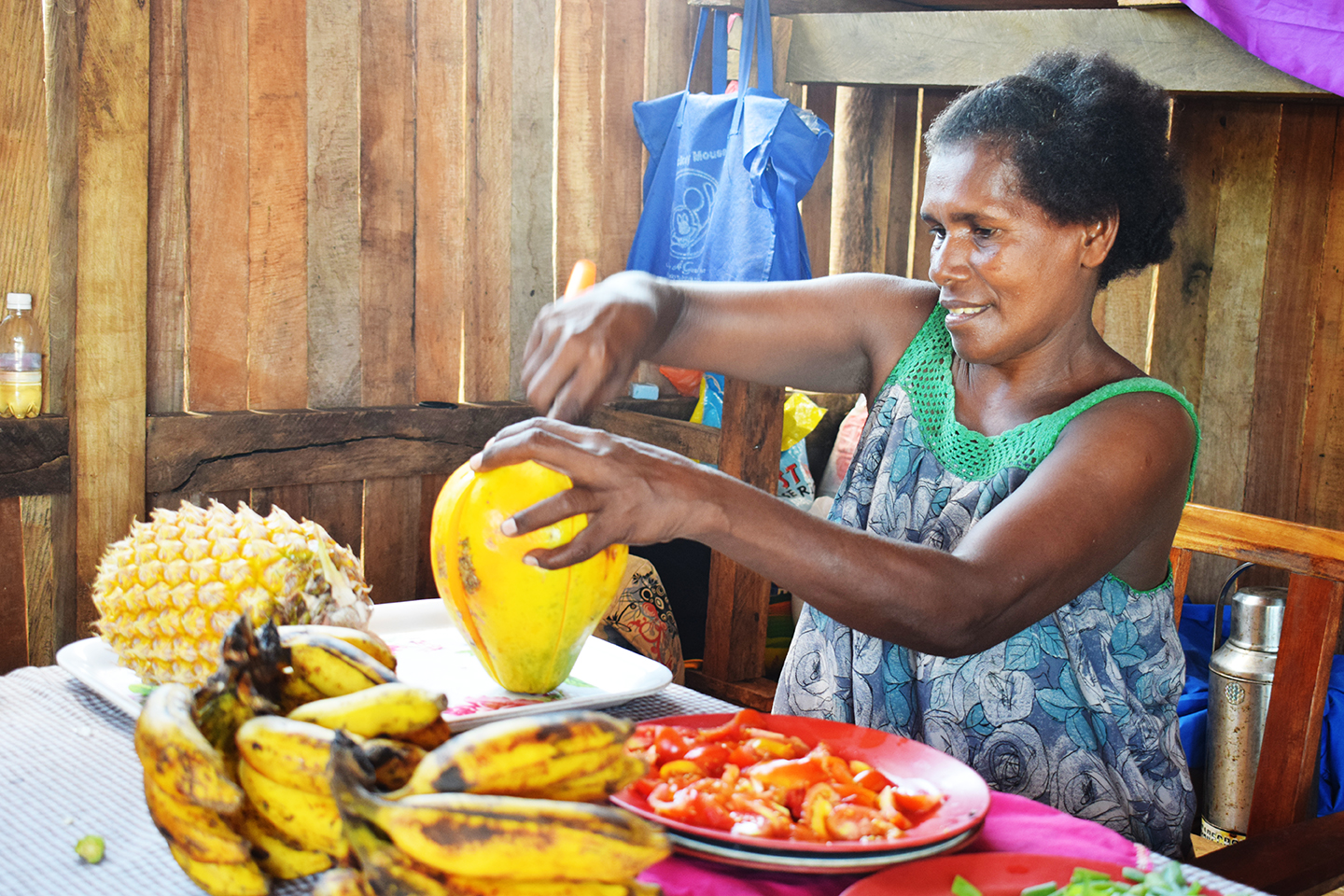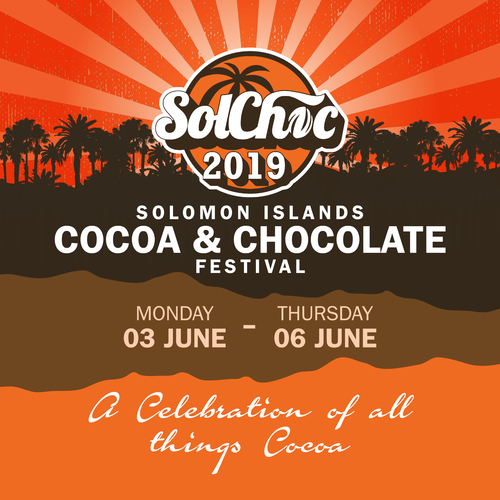Masterclass motivates growers to take up value-adding initiatives
Every harvesting season, Hagar Maesite’e makes a long and arduous journey on foot to the next village to sell wet cocoa beans. Carrying at least 50 kilograms of wet beans, the journey spans at least 15 kilometres and often takes an entire day across rough and rugged terrain.
It’s hard going for Hagar and her family, yet this is a struggle they’ve endured for years – one that puts food on the table and caters for education expenses among the family’s other priorities.
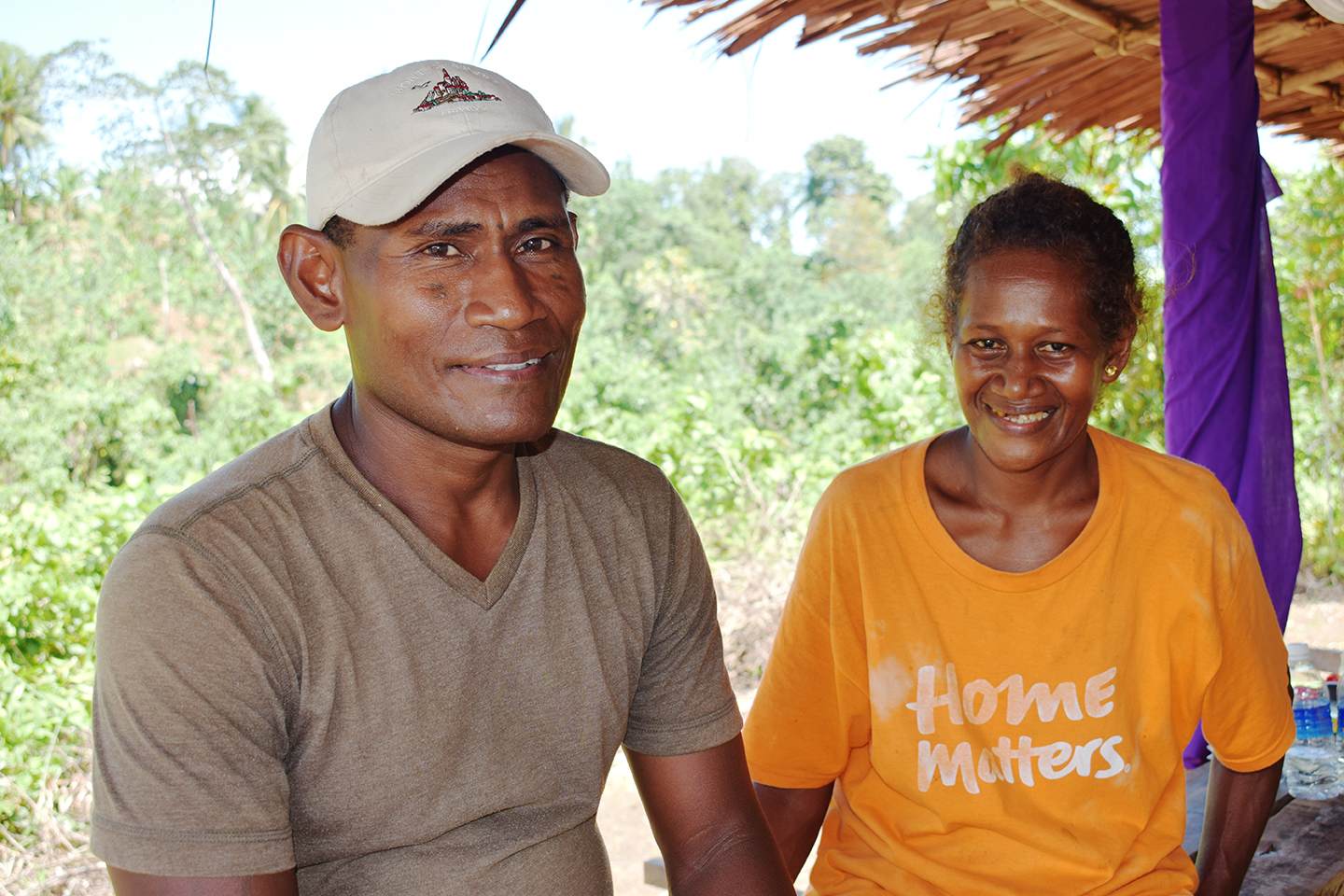
Ellison and Hagar Maesite’e travelled from Small Malaita to attend the cocoa masterclass at Aretakiki Village outside Honiara. Picture: Samantha Rina
Hagar and her husband, Ellison Maesite’e travelled from Small Malaita to Aretakiki Village outside of Honiara in the Solomon Islands to attend a cocoa masterclass, a training initiative organised by the Australia and New Zealand-funded Pacific Horticultural and Agricultural Market Access (PHAMA) Program.
Hagar is one of eight women who participated in the training; with four of them being recipients of building materials from PHAMA for a solar dryer and storage shed, as well as moisture meters.
“Through this training, I have learnt to process cocoa beans. I have learnt to ferment and dry cocoa beans. I have also learnt how to construct a solar dryer and maintain it, so I now have the skills to go into value-adding,” she says.
For Hagar, the newly acquired skills mean she can now earn more money for the cocoa she produces. It also means the heavy load of beans she regularly carries to the next village reduces significantly once she transitions from selling wet cocoa beans to dried cocoa beans.
Hagar is also now well placed to empower and build the capacity of other women in her community in Small Malaita through sharing the knowledge and skills acquired from the training.
What is the cocoa masterclass
Although primarily focused on showing participants how to construct a solar dryer, the cocoa masterclass encompasses an integrated approach to producing cocoa for the niche or boutique market. Participants are trained to manage their farms and advised about best farm practices; in addition to learning about processing cocoa; from harvesting, fermenting and drying to the storage of dried cocoa beans.
Agriculture consultants Moses Pelomo and Robert Waisu were engaged by PHAMA to deliver the second masterclass. Pelomo says the practical component of this masterclass makes it a better learning initiative.
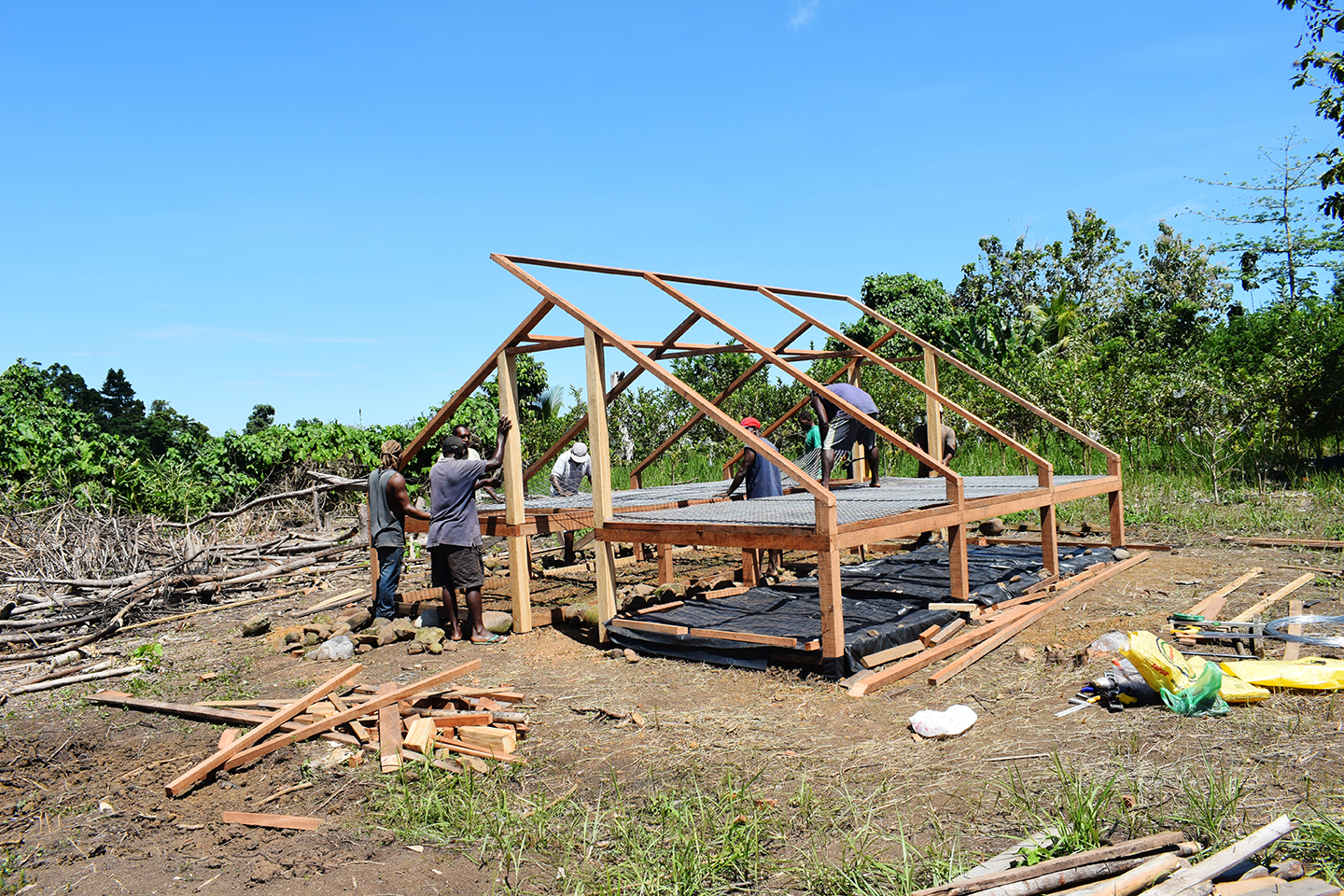
Participants of the cocoa masterclass work with their builders to construct the solar dryer as part of the practical component. Picture: Samantha Rina
“Some participants came with their carpenters, so we explained to them the principles of solar drying and showed them how to build it. We taught them to process cocoa; what to do when the beans are in fermentation stage and how to dry it properly. We taught them ways to manipulate the dryer using the inlet at the bottom and outlet to control the temperature and humidity inside the dryer. We also trained them about what to look out for in the weather because that affects what’s happening inside the solar dryer.
“Some of the things we taught are new to most of them. We can teach them the skills but if we can’t show them what to do, the practicalities of what we’re trying to teach is pointless,” he said.
Partnerships that make a difference
PHAMA’s support of this activity is aligned with its objectives to promote value-adding ventures and managing issues associated with maintaining and improving existing trade. In the case of the Solomon Islands’ cocoa industry, the smoke taint in cocoa beans meant cocoa producers could not tap into the niche cocoa market and only supplied the bulk market which offers a lower price for cocoa compared to the niche market. To address this, PHAMA collaborated with the Rural Development Program and the Commodities Export Market Authority to introduce solar drying and train growers and processors on how to produce good quality cocoa.
This effort has made a significant difference in the Solomon Islands’ which recorded exports of 32 metric tonnes of niche cocoa to date this year; the highest export yet of solar-dried cocoa beans in the country.
What the participants had to say
Waisu says the feedback from the participants has been positive.
“The farmers appreciate the field practical, advice and training because not all the farmers are visited by extension officers or have the opportunity to be part of training. After every session, we sit with the farmers and share information and they share their ideas and experiences with us too,” he said.
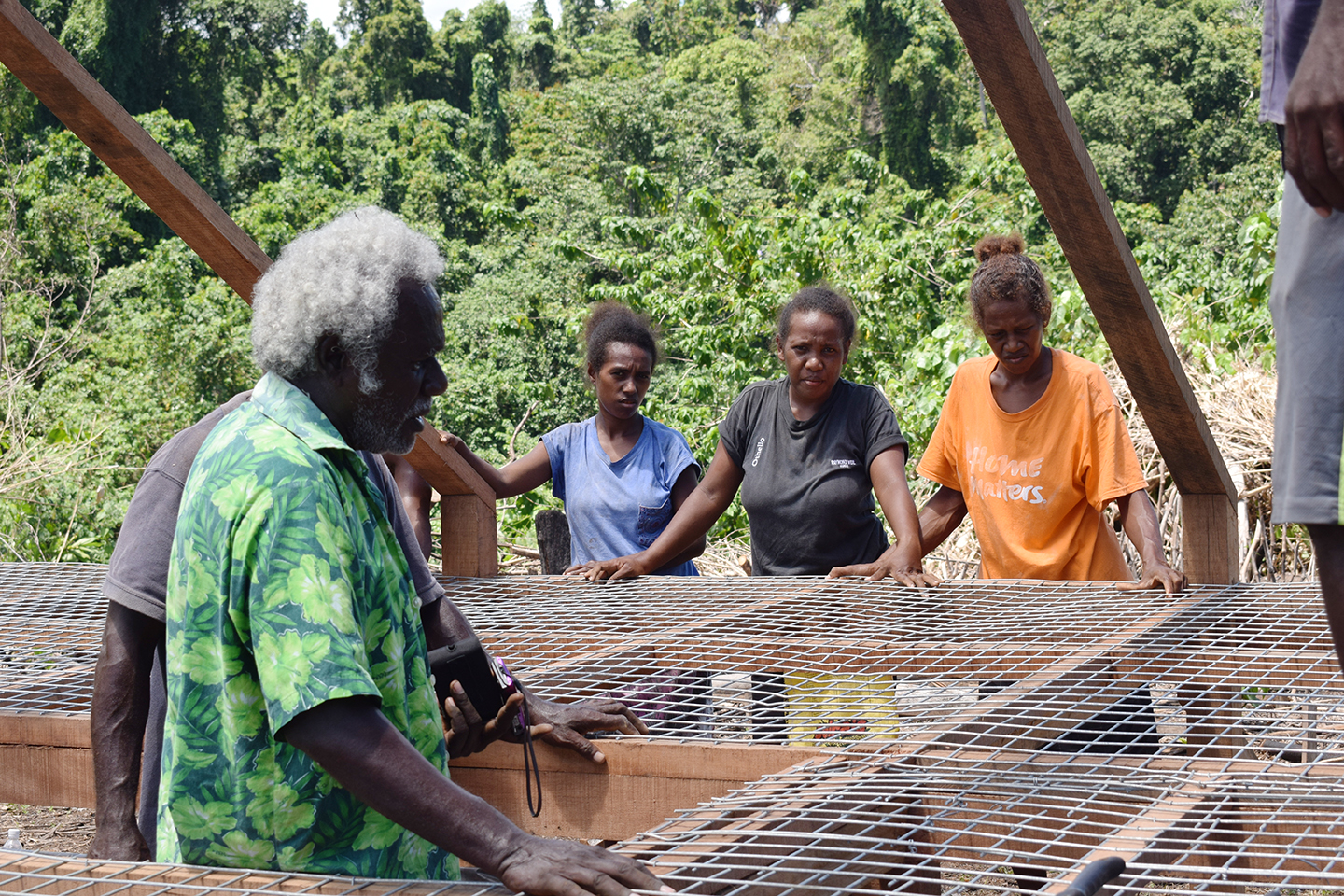
Women participants actively engage in the building of the solar dryer as Moses Pelomo, closest to camera, supervises their work. Picture: Samantha Rina
Participant, Grace Fekau, 64, is new to cocoa farming. Although she’s had a cocoa farm for 10 years, she only began producing cocoa last year after entering a partnership with Diana Yates, an established cocoa exporter in the Solomon Islands. A widow of 17 years, Fekau has successfully managed the farm to produce small quantities of wet cocoa which she sells to Diana.
“The training is good. I’m learning more from it. I brought my builder so he can learn to construct the solar dryer. Once I get a solar dryer, I can dry the beans myself. I’ve also learnt to properly ferment and dry the beans.”
She says she now has the opportunity to improve her family’s living standards. “I can pay my grandchildren’s school fees, employ a few people to clean the farm and maintain it and harvest cocoa when it’s in season. By taking an interest in this and starting it, this might inspire other people where I live in to take an interest in cocoa farming too,” she said.
Other benefits of the training
For the community of Aretakiki Village, hosting the training in the village has brought with it multiple benefits. This includes the construction of a training room and kitchen that the community can now access to sell food and earn money.
Cocoa growers John and Unice Gesi reside in the village and through a collaboration with them, Aretakiki Village was identified as the site to host the masterclass. This has brought the family a new lease of life.
“I am so happy the training was hosted here because we got to cater for meals during the training. We built new facilities including a kitchen and employed a few young women from the village to help with catering,” says Unice.
Unice and her family previously relied solely on selling fruits and vegetables to earn money. The construction of a solar dryer in Aretakiki now means the village becomes a focal point of drying for other cocoa growers around the area and the new kitchen means home-cooked and affordable meals are always available.
After the training
With the conclusion of the training, the eight recipients returned to their provinces where they’ll await the supply of materials to construct their solar dryers.
Pelomo and Waisu will later visit the recipients to follow up on the progress of construction, inspect their cocoa farms and other facilities and offer advice where needed.
Waisu says ideally, it would be beneficial to have a masterclass in each province to allow a better reach to cocoa farmers around the country.
“For a farmer to set up a solar dryer, it costs SBD10,000 so the farmers will need financial assistance to set up dryers. PHAMA’s assistance in this regard has been very worthwhile because it not only benefits the farmers, but it also brings in money to the country and grows the economy,” he said.
“It’s good to see that there’s a lot of interest in producing good quality cocoa. The farmers’ hope is to get a better price and the challenge for us is to see that their hope materialises.”
The two-week training ended on Friday, 24 November 2017.
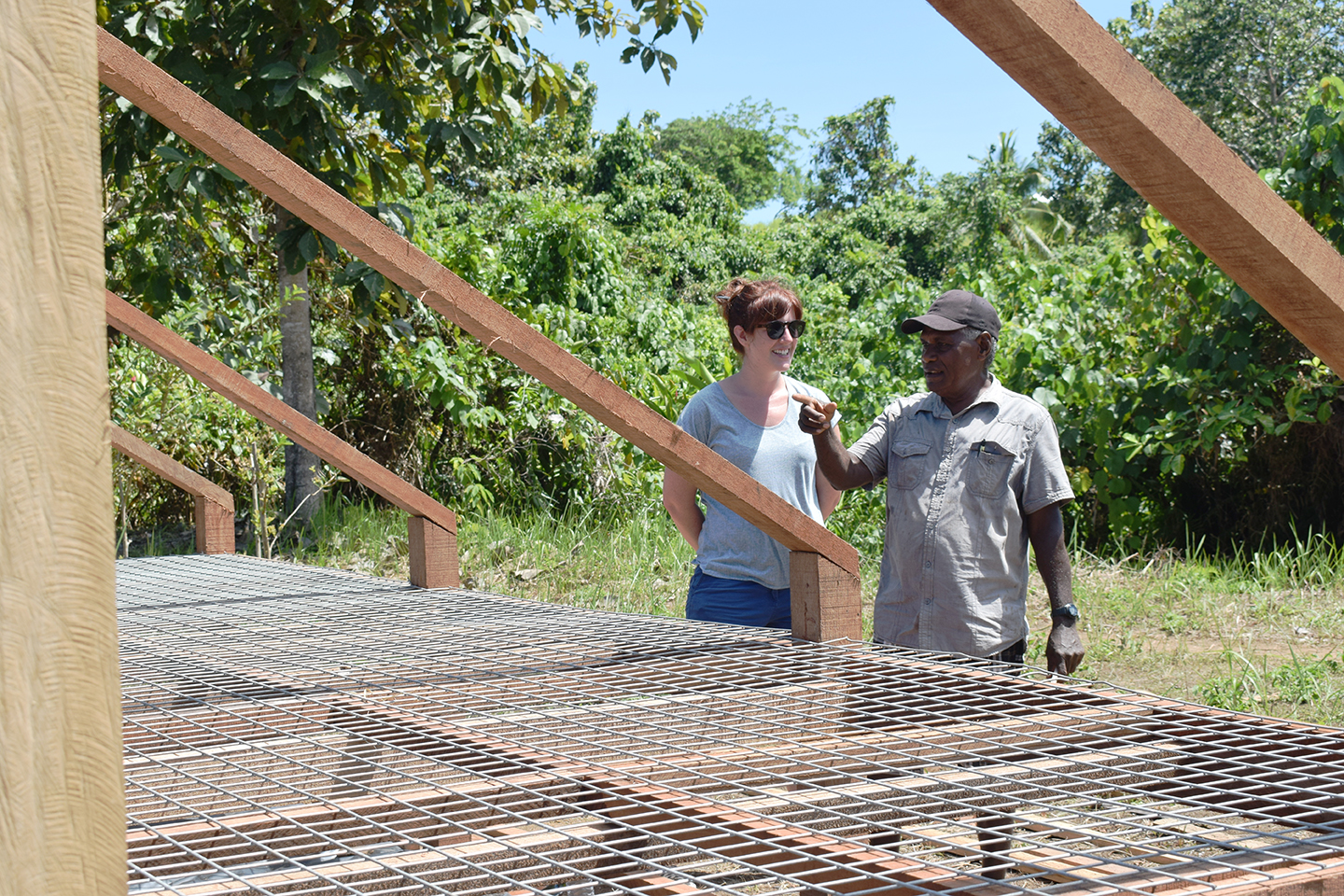
PHAMA’s Cocoa Adviser Hannah Wheaton, left, engages in discussion with Robert Waisu. Picture: Samantha Rina
For further information, contact Andrew Piper at a.piper@phama.biz or on +677 22365.

